News
Tesla Model S crash test result misses top safety rating by IIHS
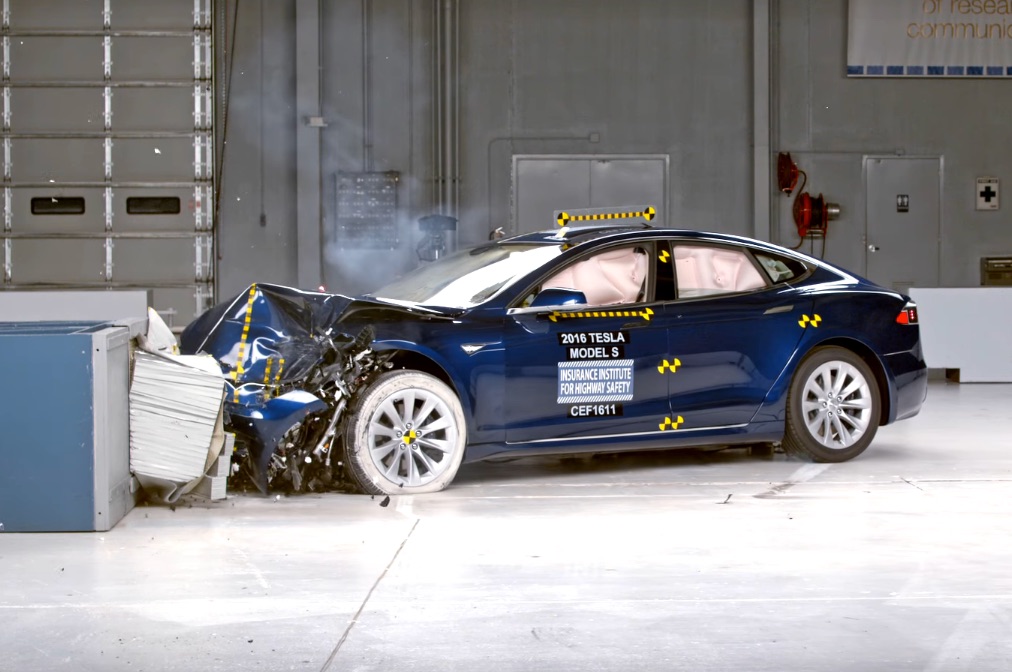
The Tesla Model S has failed to garner a Top Safety Pick rating from the Insurance Institute for Highway Safety (IIHS). In the latest round of testing, IIHS found that the driver’s seat belt allowed the crash test dummy’s head to contact the steering wheel during the small overlap front crash test. As a result, the Model S earned only an “Acceptable” rating in that area instead of the “Good” required to make it a Top Safety Pick.
The IIHS also raised concerns about the possibility of lower leg injuries during the same test. “Neither of these (potential injuries) were so high that we would expect life threatening injuries, but they are too high in our opinion to get “Good” ratings for those body regions,” said Dave Zuby, a spokesperson for IIHS.
The Model S did not fail any of the crash test procedures. The IIHS noted in its report that Tesla has made some production changes to the Model S which are designed to improve passenger safety. The updates are expected to address the concerns raised by IIHS.
Tesla believes the results do not accurately reflect the overall safety of the Model S. “We are committed to making the world’s safest cars, and Model S has previously received a 5-star safety rating from the National Highway Traffic Safety Administration and a 5-star rating from Euro NCAP. Model S still has the lowest ever probability of injury of any car ever tested by NHTSA,” said a Tesla spokesperson. “We expect to receive the highest possible rating in every category, making Model S eligible for the IIHS Top Safety Pick award.”
The BMW i3 also failed to achieve a Top Safety Pick rating during this latest round of testing, which focused on electric cars. The IIHS had concerns about the ability of the i3 seats and head restraints to protect passengers from neck injuries in the event of a rear end collision. As a result, it was rated only “Acceptable” in that area. “We expect that the BMW engineers are working on improving the rear crash protection of the seats and look forward to testing those when they’re available,” said Zuby.
Two other cars did receive a Top Safety Pick rating — the Chevy Volt and new Toyota Prius Prime. Both of those cars are plug-in hybrids, whereas the Model S and i3 are true battery electric vehicles. Zuby said the crash tests proved electric vehicles could provide safety while also offering the benefits of lower emissions.
Source: Newscutter

News
Tesla Model Y tops South Korea import sales in February 2025
The Tesla Model Y that performed well in South Korea last month was the Model Y classic, which is already being phased out.
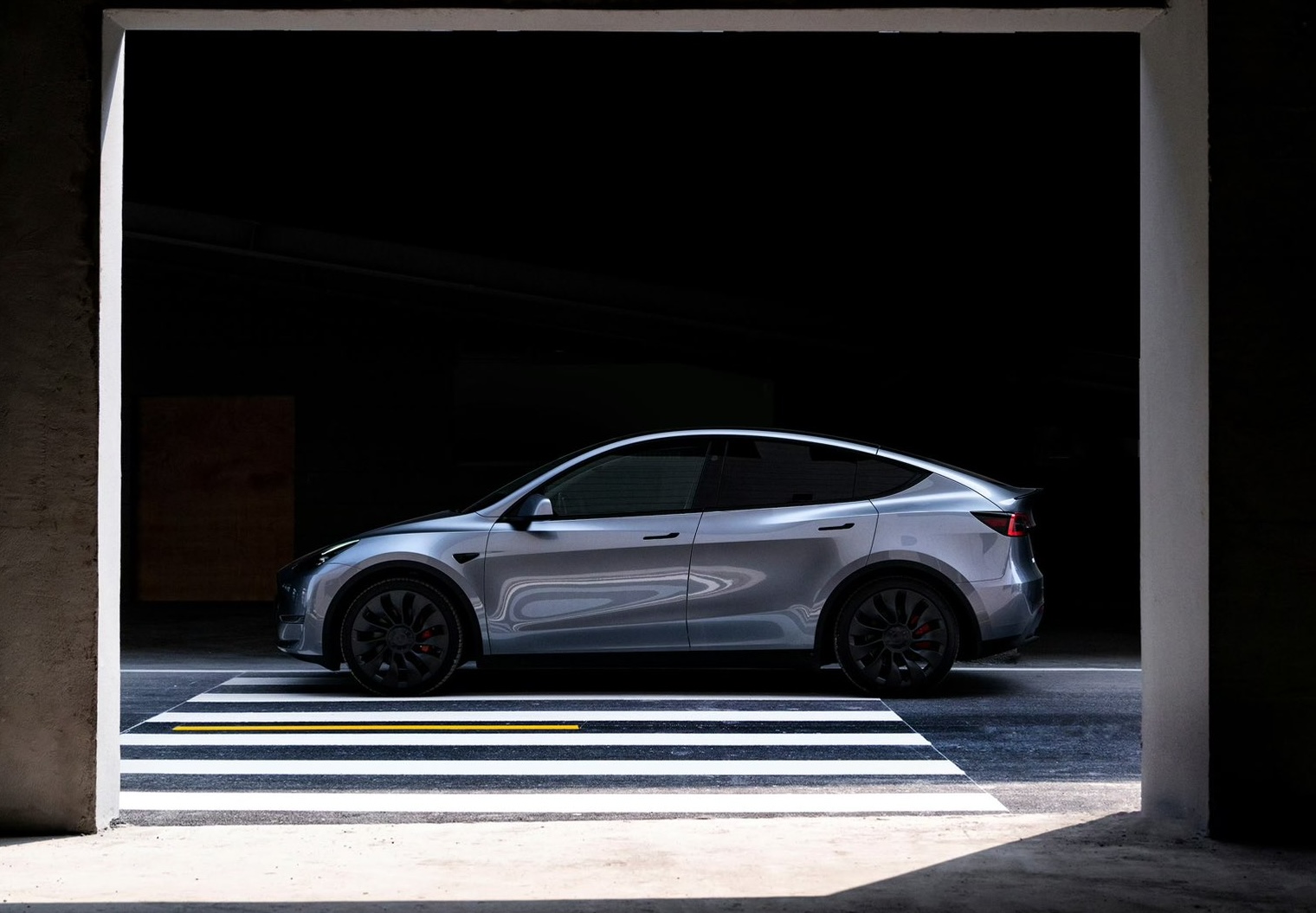
The Tesla Model Y led South Korea’s imported car market in February 2025 with 2,038 units sold, as per data from the Korea Automobile Importers & Distributors Association (KAIDA).
Total imported passenger car registrations in South Korea climbed 24.4% to 21,199 units from 16,237 a year ago. Tesla ranked third at 2,222 units, behind BMW (6,274) and Mercedes-Benz (4,663).
Model Y Classic Still A Strong Seller
The Model Y that performed well in South Korea last month was the Model Y classic variant, which Tesla is already phasing out. Its strong sales highlight Tesla’s strong presence in South Korea, where BMW beat Mercedes-Benz for the top brand spot last month.
Following the Tesla Model Y classic in the country’s import segment was the Mercedes-Benz E-Class and the BMW 5 Series. Tesla’s overall 2,222 registrations for February trailed BMW and Mercedes-Benz, but they surpassed Lexus (1,337) and Volvo (1,046), as per a report from Viva100.
Import Fuel Mix
Hybrids led South Korea’s import registrations with 13,013 units (64.4%), followed by EVs at 3,757 (18.6%) and gasoline at 3,226 (16%). Diesel lagged at 203 units (1%). A look at these numbers suggests that the Tesla Model Y classic commanded the lion’s share of South Korea’s EV imports last month.
What the KAIDA Vice Chairman says
KAIDA Vice Chairman Jeong Yoon-yeong issued a comment about the results:
“In February, new registrations of imported passenger vehicles increased compared to the previous month due to the registration of electric vehicles following the confirmation of electric vehicle subsidies and the new car effect of some brands,” the KAIDA executive noted.
News
Hyundai dives into the robotaxi business with TX-based startup
Hyundai IONIQ 5 robotaxis are launching in Texas this year — powered by autonomous driving tech from startup Avride.
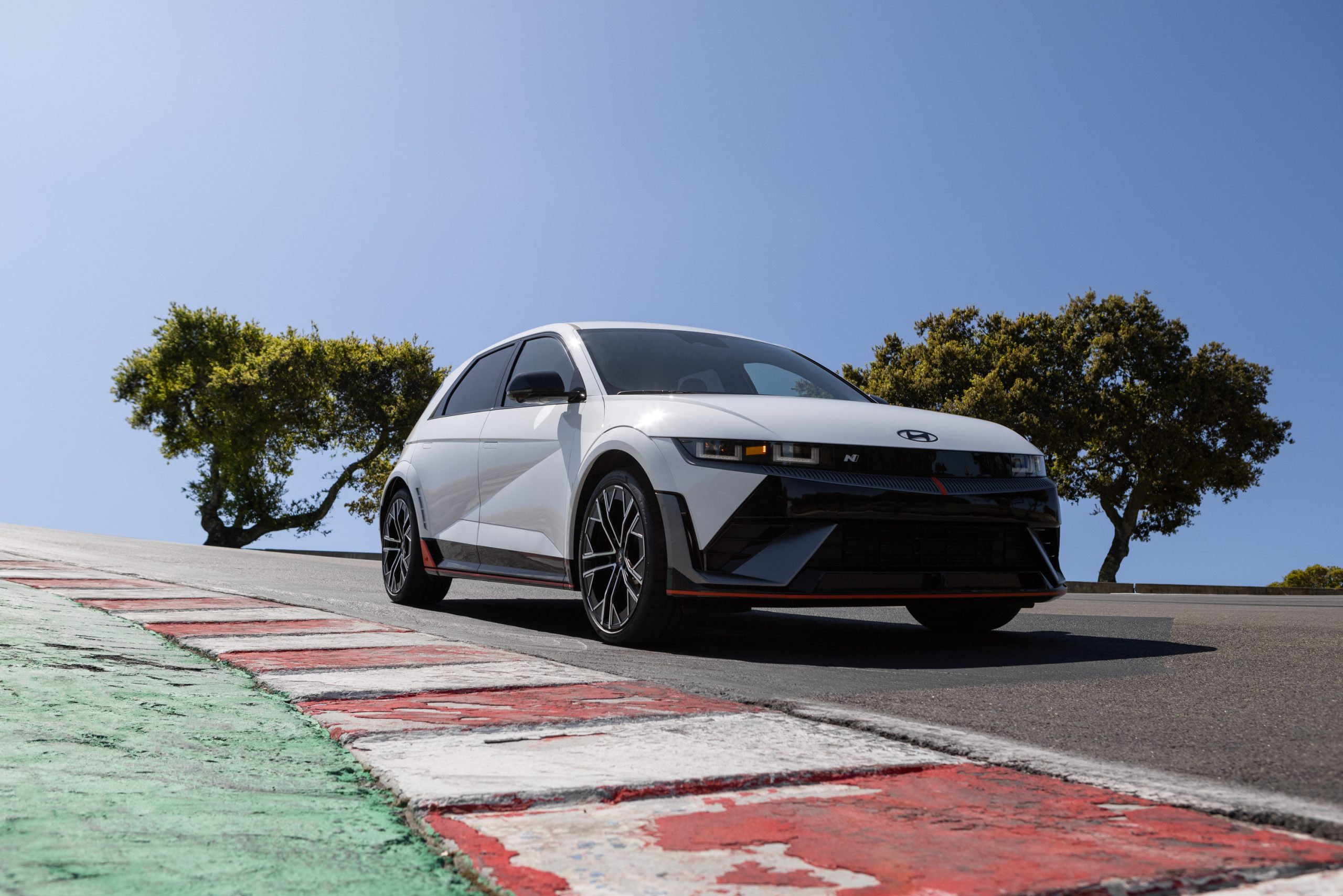
Hyundai Motor Co. is diving into the robotaxi business with Texas-based startup Avride. Hyundai and Avride’s autonomous ride-hailing service will roll out in Texas later this year.
The South Korean automaker and its new partner plan to develop driverless robotaxis based on the all-electric Hyundai IONIQ 5 SUV. Last year, Hyundai’s IONIQ 5 passed a US driver’s license test. Hyundai’s robotaxi is a Level 4 autonomous vehicle certified by Federal Motor Vehicle Safety Standards (FMVSS).
The legacy automaker will assemble IONIQ 5 robotaxi vehicles at its new Hyundai Motor Group Metaplant America (HMGMA) in Georgia. After assembly, the Hyundai robotaxis will be integrated with Avride’s autonomous driving technology.
“This new agreement with Hyundai Motor will help us scale our operations significantly, with plans to expand our fleet to up to 100 autonomous IONIQ 5’s in 2025, leveraging Hyundai Motor’s IONIQ 5 and our autonomous driving technology,” Dmitry Polishchuk, CEO of Avride, said in a press release.
Hyundai’s IONIQ 5 robotaxis will roll out later this year in Dallas as part of Avride’s robotaxi service. Customers may catch a ride in one of the driverless Hyundai IONIQ 5 vehicles through the Uber app.
Texans will see quite a few autonomous robotaxis on the road this year. While Hyundai’s robotaxis hit the road in Dallas, Tesla will launch “unsupervised full self-driving as a paid service in Austin in June,” according to Elon Musk’s statement in the last TSLA earnings call.
Energy
Tesla lands in Texas for latest Megapack production facility
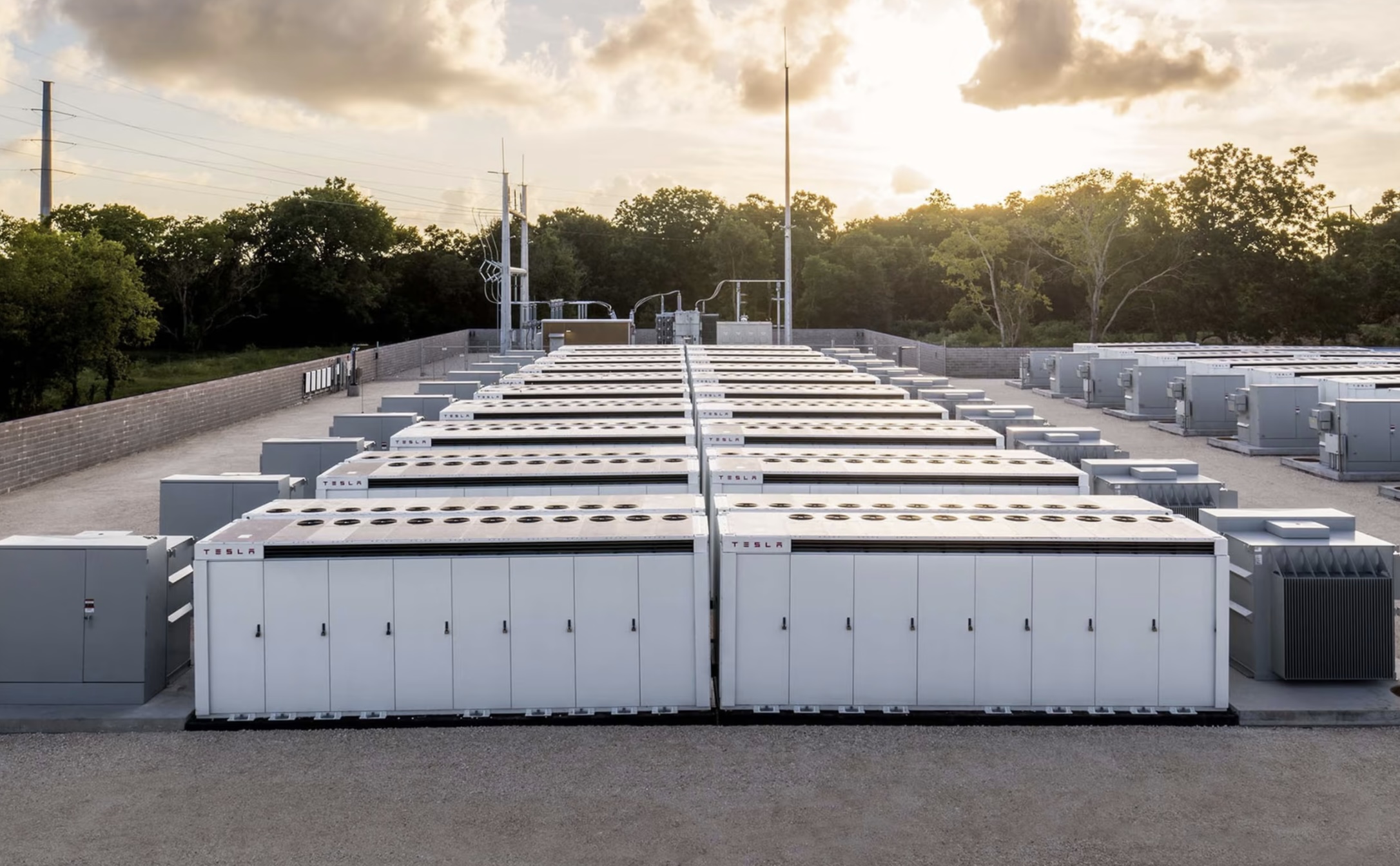
Tesla has chosen the location of its latest manufacturing project, a facility that will churn out the Megapack, a large-scale energy storage system for solar energy projects. It has chosen Waller County, Texas, as the location of the new plant, according to a Commissioners Court meeting that occurred on Wednesday, March 5.
Around midday, members of the Waller County Commissioners Court approved a tax abatement agreement that will bring Tesla to its area, along with an estimated 1,500 jobs. The plant will be located at the Empire West Industrial Park in the Brookshire part of town.
Brookshire also plans to consider a tax abatement for Tesla at its meeting next Thursday.
The project will see a one million square-foot building make way for Tesla to build Megapack battery storage units, according to Covering Katy News, which first reported on the company’s intention to build a plant for its energy product.
CEO Elon Musk confirmed on the company’s Q4 2024 Earnings Call in late January that it had officially started building its third Megapack plant, but did not disclose any location:
“So, we have our second factory, which is in Shanghai, that’s starting operation, and we’re building a third factory. So, we’re trying to ramp output of the stationary battery storage as quickly as possible.”
Tesla plans third Megafactory after breaking energy records in 2024
The Megapack has been a high-demand item as more energy storage projects have started developing. Across the globe, regions are looking for ways to avert the loss of power in the event of a natural disaster or simple power outage.
This is where Megapack comes in, as it stores energy and keeps the lights on when the main grid is unable to provide electricity.
Vince Yokom of the Waller County Economic Development Partnership, commented on Tesla’s planned Megapack facility:
“I want to thank Tesla for investing in Waller County and Brookshire. This will be a state-of-the-art manufacturing facility for their Megapack product. It is a powerful battery unit that provides energy storage and support to help stabilize the grid and prevent outages.”
Tesla has had a lease on the building where it will manufacture the Megapacks since October 2021. However, it was occupied by a third-party logistics company that handled the company’s car parts.
-
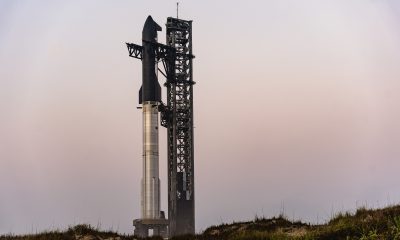
 News1 day ago
News1 day agoSpaceX announces Starship Flight 8’s new target date
-
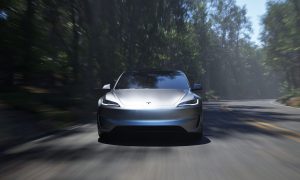
 News2 days ago
News2 days agoTesla launches fresh U.S. promotions for the Model 3
-
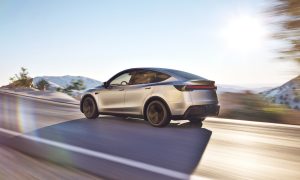
 Elon Musk3 days ago
Elon Musk3 days agoTesla mulls adding a new feature to fight off vandals as anti-Musk protests increase
-
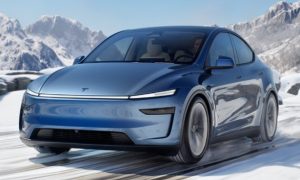
 News4 days ago
News4 days agoTesla’s lead designer weighs in on plans for these two Model Y colors
-
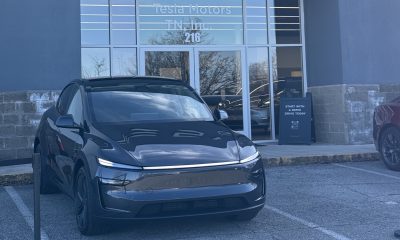
 News3 days ago
News3 days agoTesla starts Model Y ‘Launch Edition’ deliveries in the U.S.
-
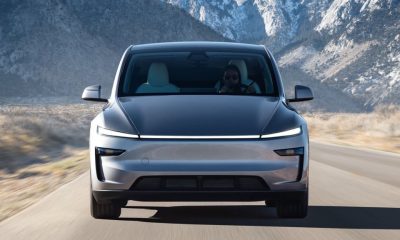
 Elon Musk3 days ago
Elon Musk3 days agoTesla gaining with Republicans as it loses traction with Democrats: Stifel
-

 Energy19 hours ago
Energy19 hours agoTesla lands in Texas for latest Megapack production facility
-

 News2 days ago
News2 days agoTesla China wholesale figures drop in February amid new Model Y transition





